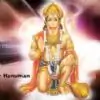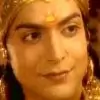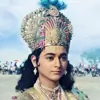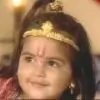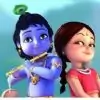RAM Ideal in all aspects
The ideal son
Though Rama obeyed His parents, at times He also advised the elders. For instance when leaving for the forest He exhorted His parents not to grieve for Him.
The ideal brother
Even today people quote Rama-Lakshman's love as the ideal illustration of brotherly love.
The ideal husband
Rama was devoted singly to His wife.
Even after abandoning Sita, Rama lived in detachment. Later when He performed a sacrificial fire (yadnya) He placed Sita's idol by His side but did not choose another wife. During those days it was a practice for kings to have several consorts. Taking this background into consideration this depicts His faithfulness to only one wife.
The ideal friend
Rama helped Sugriv, Bibhishan, etc. during catastrophes in their lives.
The ideal king
When His subjects expressed doubts about the chastity of Sita, ignoring His personal relationship with Her, He abandoned Her in accordance with the code of Righteousness of the ruler (rajdharma). Fearing social stigma Rama drove Sita out of His home, but not out of His mind'.
The ideal enemy
After Ravan's death when his brother Bibhishan refused to perform his last rites, Rama told him, 'Enemity ends with death. If you do not perform his last rites, I will. He is My brother as well.'
Follower of Righteousness (Dharma)
He followed all the bounds of Righteousness. Hence He is referred to as 'Maryada-purushottam', the Supreme limit of Righteousness.
True to His word
A. Generally when one has to emphasize a point one says 'I am speaking the truth thrice'. Similarly, the word 'Shantihi ' is recited thrice. The word 'thrice' is used with the following two meanings.
To speak taking the oath of the trinity, Brahma, Vishnu and Mahesh.
The word trivar meaning thrice is derived from tri and var, that is three days. If one gets the same dream on three consecutive nights, then it is said to be a spiritual dream. One should either act accordingly or ask a spiritually evolved person about it. Similarly only if something is heard thrice should it be considered to be the truth. Rama however, was true to His word, that is once He uttered something it was the ultimate truth and there was no need to emphasise that point again three times.
B. According to geometry three depicts the three dimensions but Rama is unidimensional.
The one who struck the target with only one arrow
Rama could strike the target with an arrow at the first shot. There was never a need for a second one.
Human nature
Rama displays emotions of happiness and unhappiness just like human beings. Hence one feels more attracted to Him than to other deities. For instance, after Sita's abduction, Rama became melancholic. However in such circumstances how the God principle in Rama was intact will be clear from the ensuing conversation between Shiva (Shankar) and Parvati, quoted below.
Parvati: Just see how the one whose Name You chant is grieving for His wife like an average mortal.
Shankar: That grief is namesake. He has to do that as He has assumed a human form.
Parvati: Rama is wandering about embracing the trees. That proves He is really pining for Sita.
Shankar: Why don't You experience whether what I said is true or false, Yourself ? Assume the form of Sita and appear before Him. Then observe His behaviour.
Parvati did as Shankar had said. Seeing Her Rama offered obeisance to Her and said, 'I have recognised You. You are the Great Illusion (Adimaya).' With this Parvati was convinced that Rama's bereavement was but a superficial display.


